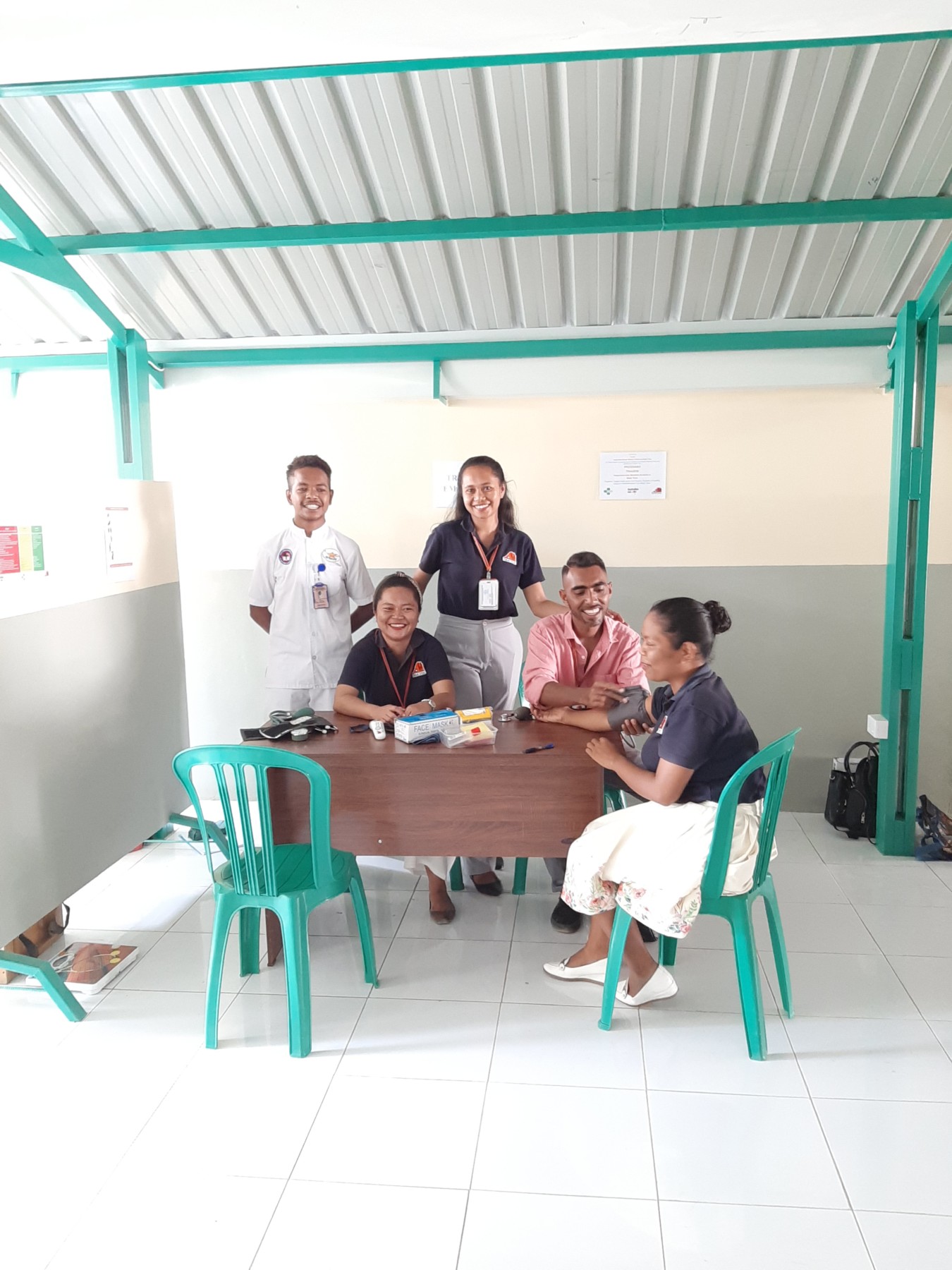Nursing Triage:
In February 2018, a young child died whilst waiting to see a doctor in one of Dili’s Community Health Centres (CHCs) – a death that may never have happened if his illness was recognised and treated earlier.
Maluk Timor’s government partners at Dili District Health took decisive action, asking us to help them implement an important, life-saving system in Dili’s CHCs: patient triage.
Triage is a system where nurses assess patients on arrival and identify sick or deteriorating patients and ensure they are prioritized to receive the emergency care they need. Whilst ubiquitous to Australian health settings, triage has not been practiced in any of Dili’s CHCs.
With the support of a DFAT Friendship Grant, our team has rolled out patient triage to all 5 CHCs in Dili. This means that 80% of the population of Dili now has access to a CHC with a triages system in place. At the completion of the program, 1/3 of all nurses working in Dili will be competent not only to deliver triage in their CHC, but also to train their peers in how to do it too.
Across every CHC, there was a 100% pass rate for both delivery and teaching triage, and 90-95% retention of knowledge and skills at follow up more than 12 months later. Even more impressive were the commitment displayed by training graduates: despite barriers like missing equipment or stolen space by visiting clinics, nurses in the CHCs continued to practice triage. Some have even adapted the system to their specific requirements and to fit patient needs. This persistence gives us hope that the programme has not just trained the nurses, but embedded cultural and system change.
This was no ordinary “training”, which probably explains the extraordinary results. First, our team helped each CHC to design and renovate an area for triage. This work – sometimes small, sometimes a little larger – helped demonstrate the importance of this program and build strong rapport with local leaders. Outpatient nurses then underwent an intensive, prolonged training implementation period of 6-8 weeks. Following a week of intensive teaching, our nurses worked side-by-side, everyday, with nurses in the CHC – coaching, mentoring and encouraging them to use the new practices.
Our work is not over and the Nursing Team is looking forward to consolidating this success in 2020. In order to make this system truly sustainable, we plan to design a Ministry of Health endorsed program, which can be rolled out to all CHCs in the country, and continue follow up and refresher trainings in Dili.
Thank you to our wonderful team of nurses – Dea, Karolina, Juliana, Dinis – and volunteers for demonstrating that real capacity building is possible; with patience and persistence. Thank you also to the Australian Department of Foreign Affairs and Trade for supporting us with the Friendship Grant.

